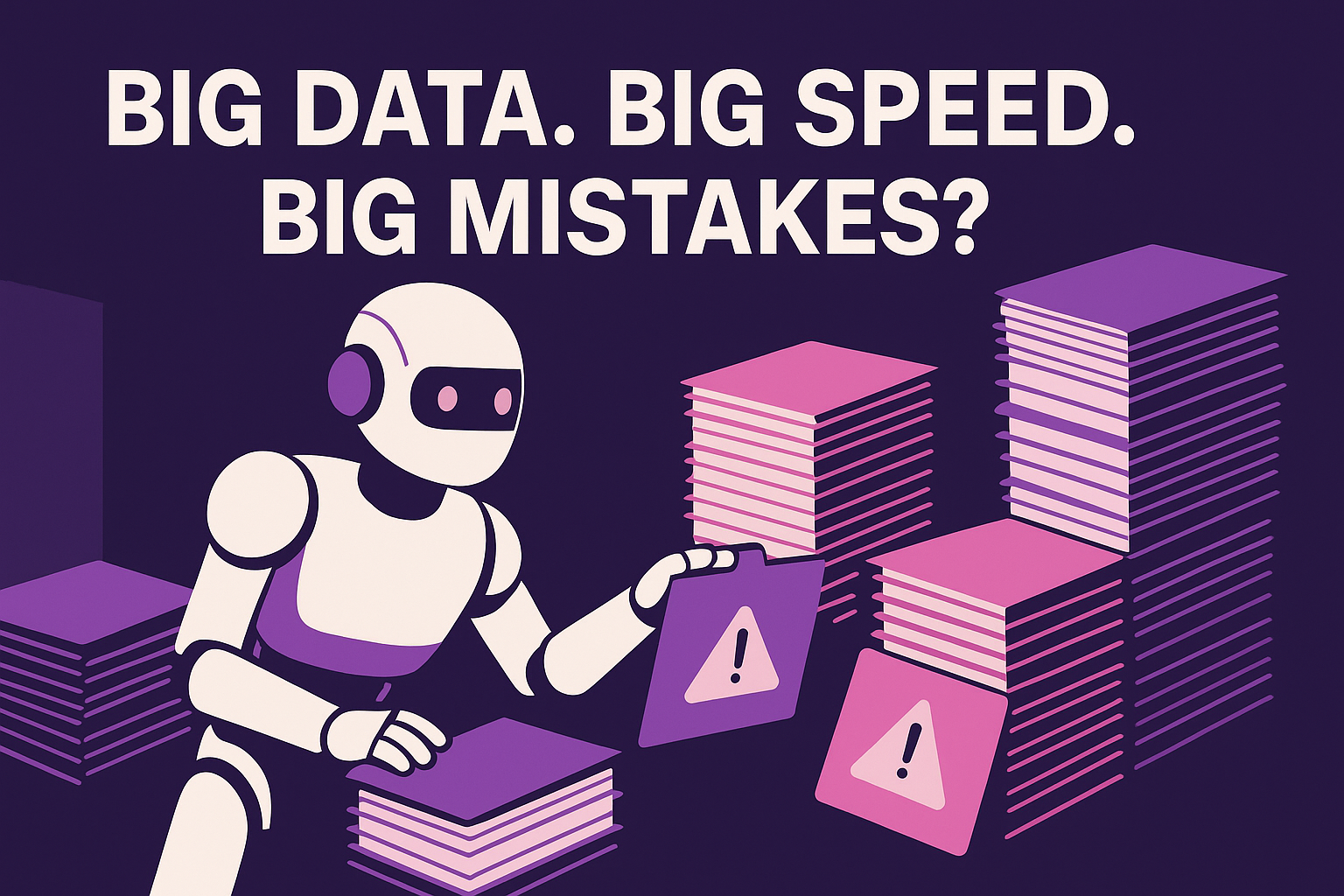Since AI first emerged in mainstream business, one of the key selling points was its ability to process vast data sets. What previously took human analyst’s weeks, AI could now do in a matter of hours, sometimes even minutes. That ability alone, instantly convinced many people that AI was the future. “If AI can do that, imagine the possibilities…”
It was a good start, an optimistic one, and many different use cases have been built on it. It’s become accepted and expected to have some form of AI integrated into whatever type of business software you’re using.
Consider the volume of ecommerce transactions conducted every day. AI has proven useful for analysing customer insights and buying behavior, tracking inventory, mapping logistics and delivery routes. The decades old struggle of what to do with the vast volumes of data generated and how to use it, has seemingly been solved.
AI is churning through that data, helping to build automations, map possible areas for efficiency and generating insights from the masses of data that gets generated every day. And it’s doing it much faster which promises that the insights generated will be more relevant – but are they really?
It’s one thing to be able to deal with volumes of data, another to handle them accurately. Increasingly this is a flaw showing up in AI generated insights. It’s something to take note of, especially if decision makers are relying on the outputs being generated.
Processes are not made more efficient if data is inaccurate and more data won’t change that either. It just repeats and augments the errors. The very advantage of AI is now proving to be its Achillies’ heel. Big data can come with a big cost if accuracy is compromised. Especially if the AI confirms it’s answers, despite them being inaccurate.
A recent study identified that most major generative AI systems are inaccurate 60% of the time, especially when citing sources. For people relying on AI search to deliver accurate answers, this is bad news. The question now is what can be done about it?
The AI companies claim to be working on improving accuracy, but when you think about it there’s no quick fix. Most AI models build on their learning by assuming what’s been learnt is accurate. If the base data is flawed even marginally, or coding results in inaccurate answers being generated, adding more data into the mix will only make the problem bigger. Finding where the inaccuracies or errors have occurred can be a major challenge
In the meantime, user trust is likely to be eroded and people may be more cautious about accepting answers, especially if it’s on subjects where they have little expertise. Sure, many will continue to use AI. Will they be a little more diligent about fact checking, or will the inaccuracies be glossed over? It’s likely to be a challenge for companies that have been encouraging employees to dive into the world of AI. What will the costs be if outputs generated are all wrong?




